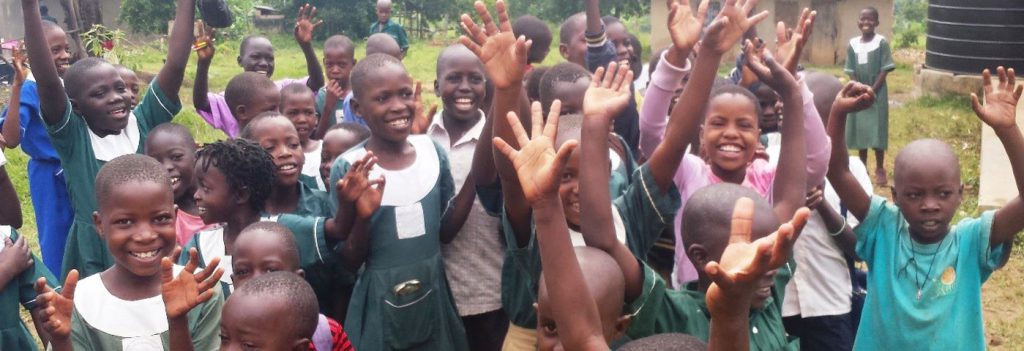Uganda. The Pearl of Africa, lush landscapes, bright colours, and friendly people. Where to begin describing this beautiful country?
The journey from Entebbe airport was my first taste of the country. I had an idea of the landscape but it was nothing like seeing it in the flesh – the reddest earth you’ve ever seen and green, lush, tropical vegetation. The streets are lined with stalls and shops, and colours and sounds abound as we make our way slowly into Uganda’s capital Kampala; loud, vibrant local music pumps from every third stall along the street, the smell of hot oil as women deep fry cassava into golden salty chips, huge bushels of bright green matoke (a starchy green banana) are loaded precariously onto bicycles.
Within this bustling landscape you wouldn’t believe there’s a water crisis, but access to safe water supplies throughout Uganda is a real issue for many. Although the number of people with access to safe water and sanitation has improved over the past 10 years, there are still many communities (both rural and urban) that rely on contaminated water sources such as streams and open wells. More than half of all residents in Uganda do not have access to improved sanitation, sharing overcrowded pit latrines or practicing open defecation.
In unplanned urban settlements near Kampala, residents pay up to three times more for safe tap water than residents living in planned urban communities. As a result, residents collect water from alternate contaminated sources. This causes frequent outbreaks of waterborne diseases such as cholera and dysentery.
But amongst all these terrible facts and figures are people of genuine warmth and kindness. During my project visit I had the incredible opportunity to meet students from one of our projects, at Kkungu School, who’d received new latrines, a water tank, and hygiene and sanitation training – such as how to wash your hands properly after visiting a latrine, or before handling food. Whilst talking to them about these solutions, it was evident that the students and teachers alike felt that having clean water on site opened up many positive opportunities for them. The children felt that they could focus wholeheartedly on their studies, and the teachers didn’t have to worry about poor student attendance rates or having to spend money on buying water. Now they could buy new stationery, uniforms or useful things like mosquito nets.
Listening to them made me realise that such simple solutions can have profound effects on people’s lives.
